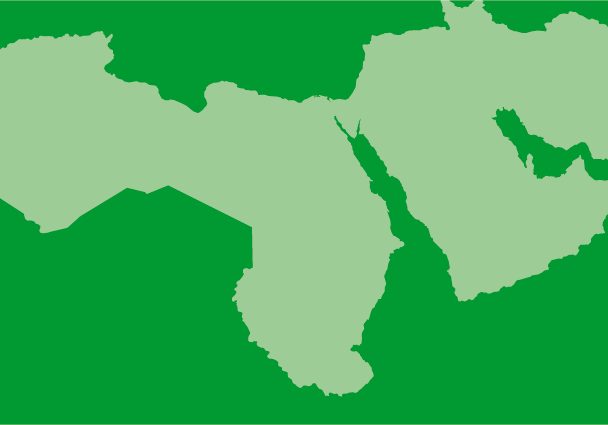The ICJ’s Center for the Independence of Judges and Lawyers today addressed an intervention to President Khatami of Iran, expressing its concern at the criminal slander and spreading of propaganda charges against an Iranian lawyer, academic and former MP.
22 April 2003
H.E. President Sayed Mohammad Khatami
President of the Islamic Republic of Iran
Palestine Avenue
Tehran, Islamic Republic of Iran
Fax: +98 21 649 5880
Your Excellency,
The International Commission of Jurists (ICJ) consists of jurists who represent all the regions and legal systems in the world working to uphold the rule of law and the legal protection of human rights. The ICJ’s Centre for the Independence of Judges and Lawyers is dedicated to promoting the independence of judges and lawyers throughout the world.
We are writing to you to express our concern at the criminal slander and spreading of propaganda charges against Mr. Qasem Sho’leh Sa’di Ghassem, a lawyer, political science professor at Tehran University, and former parliamentary deputy. These charges were laid in connection to Mr. Ghassem’s publication of an open letter on his web site on 5 November 2002 to the Leader of Iran, Ayatolla Sayed Ali Khamenei. In the letter, Mr. Ghassem respectfully challenged the legitimacy of the current regime and questioned its policies. The letter did not incite racial hatred or violence. Following the publication of the letter, Mr. Ghassem left for France and did not return to Iran until 24 February, at which time he was immediately arrested.
Upon his arrest, Mr. Ghassem was reportedly permitted a 30 second telephone call to his wife to inform her of his arrest. The next day, Mr. Ghassem was allowed another short telephone call to his family and he told them that he was being held at Evin Prison. On 4 March the family of Mr. Ghassem sent a lawyer to the prison to speak with him. The lawyer was not permitted to see Mr. Ghassem and was informed by prison officials that he had waived his right to legal counsel. On 8 March, Mr. Ghassem was again permitted to telephone his family and he reportedly informed them that he was about to commence a hunger strike in protest of his detention. Mr. Ghassem was not heard from again until 20 March, when his brief telephone call to his wife was reportedly cut off after she inquired as to his hunger strike and the state of his health.
On 2 April, and reportedly due in part to his deteriorating medical condition, Mr. Ghassem was released from prison on bond. He still faces the criminal charges of slander and spreading propaganda. No trial date has yet been set. The ICJ/CIJL is deeply concerned to receive reports that Mr. Ghassem was allegedly kept in solitary confinement and possibly even tortured during his incommunicado detention in prison.
We remind you that the International Covenant on Civil and Political Rights (“ICCPR”), to which Iran is a State Party, guarantees the right to freedom of expression, including the right to hold opinions without interference” and “to receive and impart information” (Article 19). Moreover, the ICCPR also guarantees the “right to freedom of thought, conscience and religion” (Article 18).
With regard to Mr. Ghassem’s treatment while in prison, the alleged abuses suffered during his detention are a clear violation of the basic human rights of freedom from arbitrary detention, physical threats, and torture as guaranteed by the Constitution of Iran (1979) and the ICCPR. Moreover, the ICCPR further guarantees that States must ensure that those individuals who are deprived of their liberty are treated humanely (Articles 7 and 10), that they are afforded pre-trial judicial guarantees (Article 9), and that their right to due process, including access to a lawyer, is respected (Article 14).
In addition, the ICJ is deeply concerned that Mr. Ghassem was effectively prohibited from accessing his right to counsel. In this regard, we would like to draw your attention to the United Nations Basic Principles on Role of Lawyers (“Principles”). The Principles, which were adopted by the U.N. General Assembly in 1990, provide that “all persons are entitled to call upon the assistance of a lawyer of their choice to protect and establish their right and to defend them in all stages of criminal proceedings” (Principle 1). In addition, by refusing to ensure that Mr. Ghassem was able to access legal representation, your Government has thus obstructed the ability of counsel to fully exercise their duties towards their clients (Principle 13).
Thus, the ICJ strongly urges your Government to immediately withdraw the slander and spreading of propaganda charges against Mr. Ghassem. In addition, the ICJ requests a full and impartial inquiry into the alleged abuses perpetrated against Mr. Ghassem during his detention.
Yours sincerely,
Louise Doswald-Beck
Secretary-General
cc: S.E.M Mohammad Reza Alborzi
Ambassador
Permanent Mission of the Islamic Republic of Iran to the United Nations
Chemin du Petit-Saconnex 28
1209 Geneva
Fax: 022 733 02 03
Mr. Mohmoud Hashemi Shahrudi
Minister of Justice
Park-e-Shahr
Tehran, Islamic Republic of Iran
Fax: 98 21 879 6671
Mr. M. Kamal Kharrazi
Minister of Foreign Affairs
Sheikh Abdolmajid Keshk-e-Mesri Ave.
Tehran, Islamic Republic of Iran
Fax: 98 21 390 1999
Iran-charges against lawyer-open letter-2003 (text, PDF)

